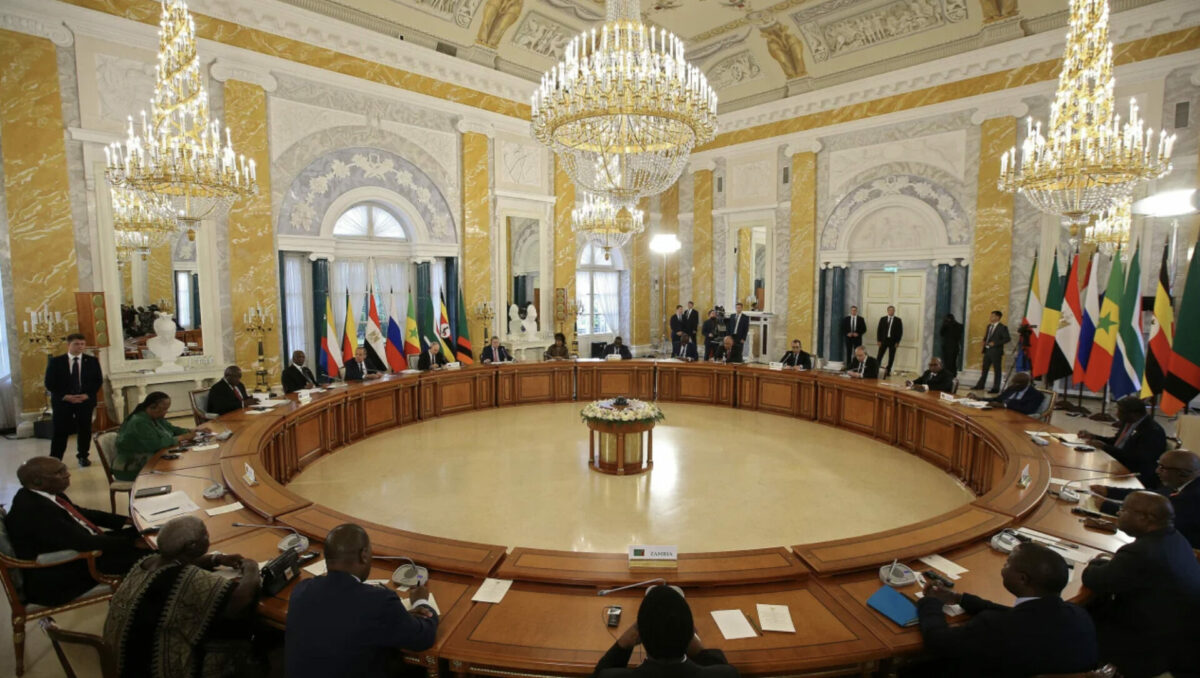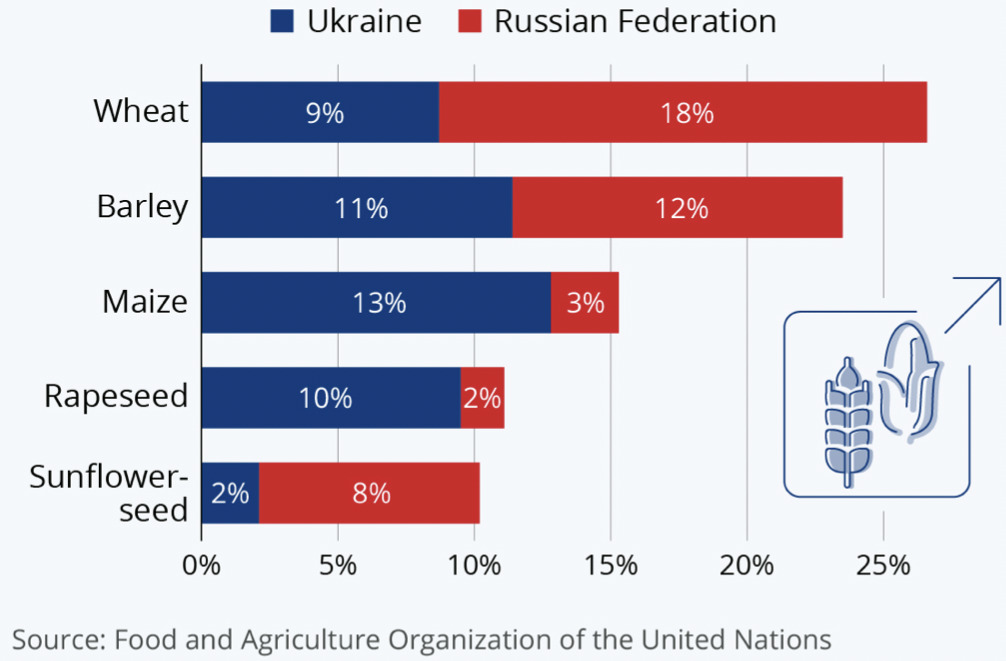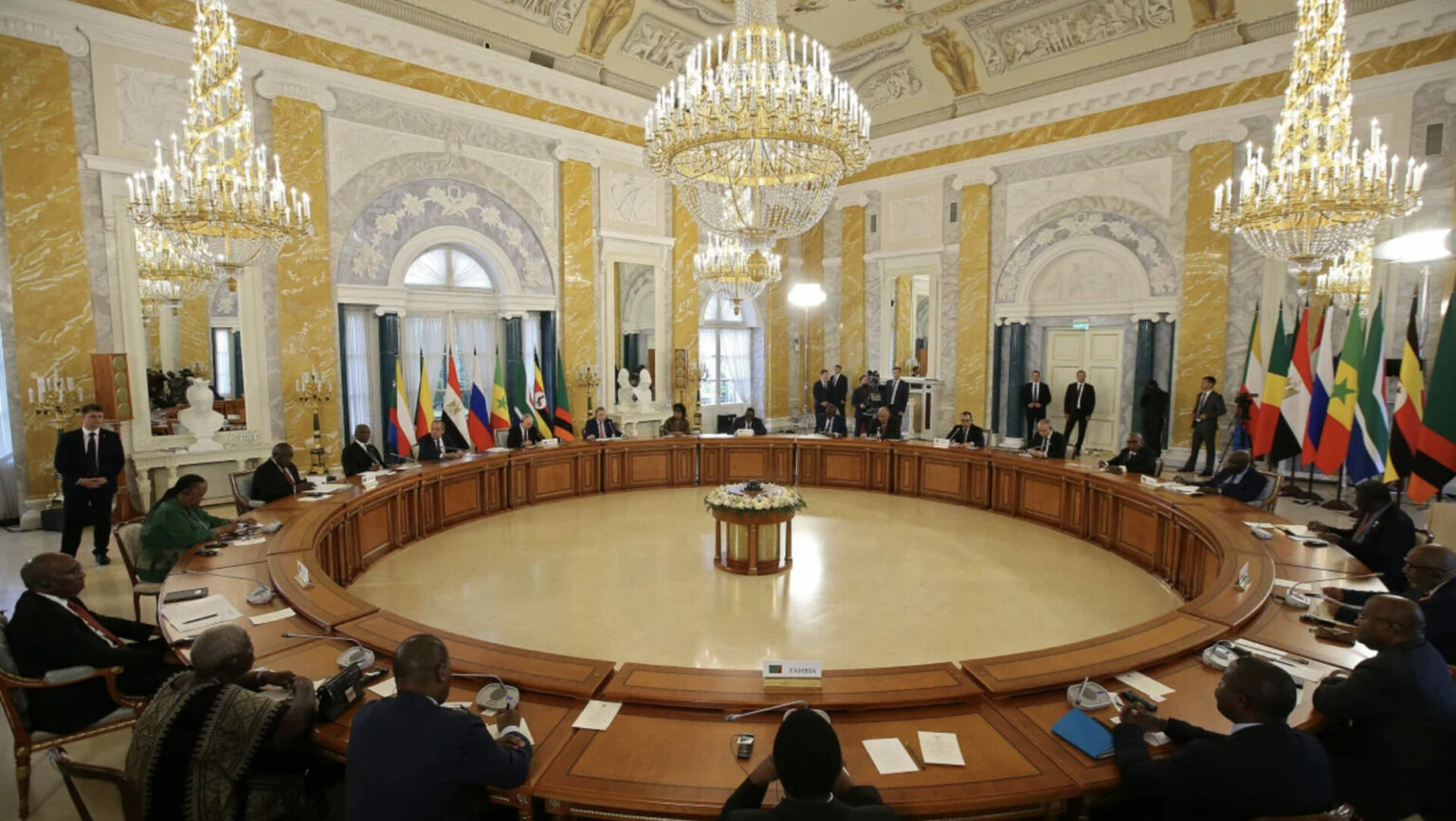The seven African leaders — the Presidents of Comoros, Senegal, South Africa and Zambia, as well as Egypt’s prime minister and top envoys from the Republic of Congo and Uganda — visited Ukraine on Friday on an attempt to help end the on-going Russia-Ukraine war.

South African President Cyril Ramaphosa led the high-level delegation to Ukraine first and then Russia to facilitate peace talks between the warring parties and called for “The war to be ended” The delegation voiced concerns that the continent of Africa was suffering under a prolonged conflict, with Ramaphosa insisting to Zelensky that “there should be peace through negotiations.”
“We salute the balanced approach of our African friends to the Ukrainian crisis. […]
Mr Putin praised what he described as Africa’s balanced position on the war, which Russia continues to call a “special military operation”, further stating that they are open to a constructive dialogue with all those who want peace based on the principles of justice and consideration of the legitimate interests of the parties,”
Details about the delegation’s Proposals
Details about the delegation’s proposals were thin. Foreign Minister Sergey Lavrov said after the three-hour meeting that the Africans’ peace plan consisted of 10 elements, but “was not formulated on paper.”
“The peace initiative proposed by African countries is very difficult to implement, difficult to compare positions,” Kremlin spokesman Dmitry Peskov said. But ”President Putin has shown interest in considering it.”
“The main conclusion, in my opinion, from today’s conversation is that our partners from the African Union have shown an understanding of the true causes of the crisis that was created by the West, and have shown an understanding that it is necessary to get out of this situation on the basis of addressing these underlying causes,” Lavrov said.
Food Insecurity in Africa

The self-styled peace mission to Ukraine, the first of its kind by African leaders carries particular importance for Africa, which relies on food and fertilisers from Russia and Ukraine.
“The Russia-Ukraine war is affecting Africa negatively,” South African President Cyril Ramaphosa said at a news conference alongside Ukrainian President Volodymyr Zelenskyy and four other African leaders after their closed-door talks on Friday.
Many African countries have been hit hard by the Ukraine war, well into its second year, particularly as a result of soaring grain prices and intensified global food insecurity.
But Mr Putin blamed the West for the grain crisis – not the war in Ukraine – as he said only 3% of the grain exports permitted under a UN-sponsored deal to ensure its safe passage through the Black Sea had gone to the world’s poorest countries.
Russia has repeatedly complained that Western sanctions are restricting its own agricultural exports. Kremlin spokesman Dmitry Peskov said there were “no grounds for extending” the grain deal, because “so far what we were promised has not been done”. Putin said the West, not Russia, was responsible for a sharp rise in global food prices early last year that has hit Africa especially hard.
The delegation, including Presidents Macky Sall of Senegal and Hakainde Hichilema of Zambia, among others, reflecting a diverse cross-section of African perspectives on the war.
When it comes to censuring Moscow over the conflict, South Africa, Senegal and Uganda have refrained from taking action, while Egypt, Zambia and Comoros voted against Russia last year in a U.N. General Assembly resolution condemning Moscow’s invasion.
Many African nations have long had close ties with Moscow, dating back to the Cold War when the Soviet Union supported their anti-colonial struggles.
Chances for peace talks look dim as Ukraine and Russia take sharply different stands. Ukraine demands that Russia withdraws its troops from all its occupied territories as a condition for peace talks. The Kremlin, in turn, wants Ukraine to recognize the Crimean Peninsula, which Moscow illegally annexed from Ukraine in 2014, as part of Russia and acknowledge other land gains it has made.
Ramaphosa and others acknowledged the intensity of the hostilities but insisted all wars must come to an end and emphasised their willingness to help expedite that.












